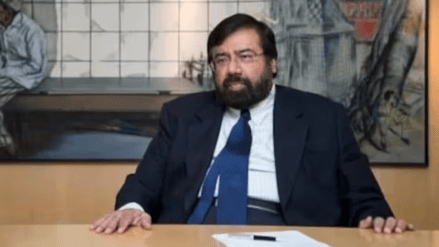Harsh Goenka insisted on Tuesday that India needed to change its strategy towards the AI, energy and defence sectors in order to reach the global state. The prominent businessman cited the recent All-In Summit in Los Angeles to underscore his point — noting that the country had found no mentions as top leaders debated the future of AI, energy and defence.
“At a global summit where Elon Musk, Mark Cuban and Eric Schmidt debated the future of AI, energy and defence, India wasn’t mentioned even once. Why? Because we still haven’t built the deep, scalable ecosystems that make a nation unavoidable in global conversations,” Goenka opined in an X post.
‘They’ll notice only when we actually rise’
The RPG Group chairman also contended that it was necessary for India to “actually rise” in order to gain global attention. The Indian economy has surged forward in recent months — becoming the fourth largest in the world earlier this year. Despite these advancements, Goenka noted that the innovation landscape of India appeared to be falling short when compared against countries like the US and China. He highlighted several emerging sectors including deep tech, clean energy, and artificial intelligence to emphasise his stance.
“We celebrate our digital wins, but the world is debating chips, fabs, supply chains, and energy grids- the industries that define power and leverage. We need the urgency, ambition and reform zeal to unleash innovation, scale, and efficiency. The world won’t notice our rise because we say so. They’ll notice only when we actually rise,” he added.
China vs India?
The remarks also came mere days after Goenka — a prolific social media user — posted a lengthy thread outlining the key differences between India and China. He noted that the two countries had been at roughly similar starting points in 1990. But Beijing had surged ahead in recent years to now have a GDP “nearly five times” that of India.
“China’s model delivered speed and scale, but with rising debt, ageing, and centralised risk. India’s offers stability, inclusion, and resilience, but needs sharper focus on jobs, skills, and manufacturing productivity. China shows what discipline and direction can achieve. India must now show what democracy and diversity can deliver. The coming decades will decide not who copies whom, but who adapts best to a changing world,” he concluded.
